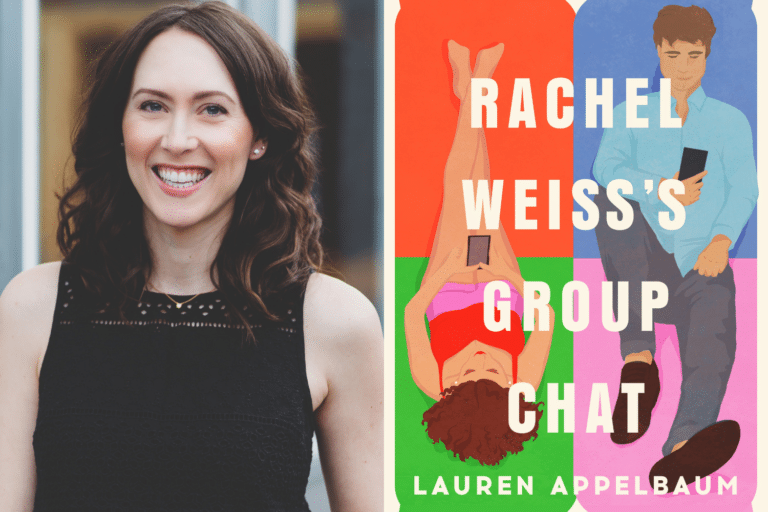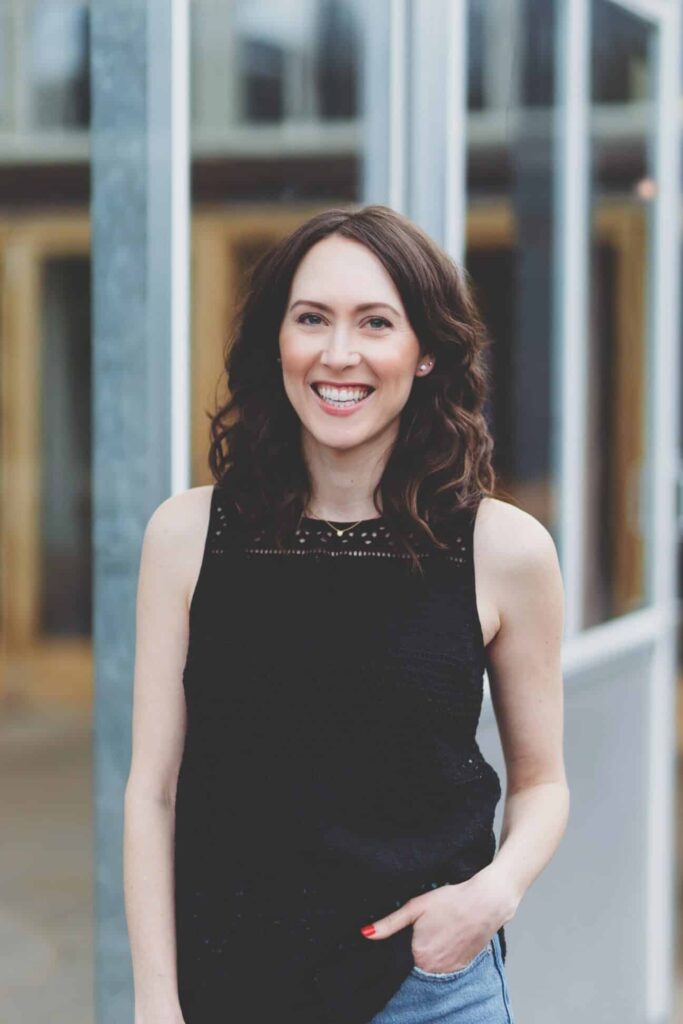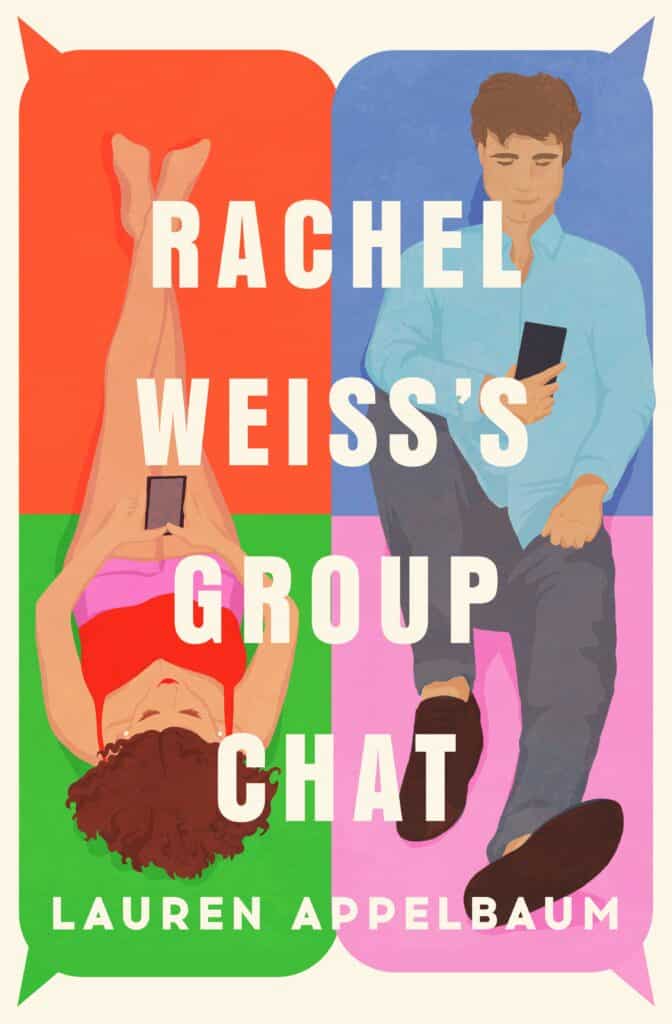
Few romances remain as iconic as Elizabeth Bennet and Mr. Darcy from “Pride and Prejudice” over 200 years after they were first published. Author Lauren Appelbaum drew inspiration on the fan-favorite love story with her debut novel “Rachel Weiss’ Group Chat,” which was released in September, and previously named one of Unpacked’s top book picks for 2024.
Following 29-year-old Seattlite Rachel Weiss as she scrambles to get her life together before her 30th birthday, this rom-com is a hilarious adaptation that reckons with what it means to be a Jewish millennial today.
Often told through our heroine’s group chat with her best friends, “Rachel Weiss’ Group Chat” is a perfect depiction of growing up, growing friendships, and being open to our first impressions being incorrect.
This opposites attract, enemies-to-lovers romance between disgruntled tech employee Rachel and Christopher, the rich tech bro next door is not only laugh-out-loud funny, but also a meaningful look at self-discovery. “Rachel Weiss’ Group Chat” masterfully blends the magic of “Pride and Prejudice” while paying romance to 2000s rom-coms.
In an interview with Unpacked, Appelbaum discussed her inspirations behind “Rachel Weiss’ Group Chat,” the novel’s Jewish representation, and modernizing the rom-com.
This interview has been lightly edited and condensed for clarity.
There’s obviously inspiration from “Pride and Prejudice” in “Rachel Weiss’ Group Chat.” What made you decide you wanted to turn Jane Austen into a millennial Jewish romance novel?
For a while, I knew in the back of my mind that I wanted to do a fun, irreverent story set in Seattle where the heroine was someone who would be entertaining to follow around. And then one day I had this moment of inspiration when I thought, what if it was a retelling of “Bridget Jones’s Diary,” but using a group chat format instead of a diary?
And since Bridget Jones is also a retelling of “Pride and Prejudice,” that just fell into place, and I’m a total P&P fangirl, so I loved the idea of retelling it. As a Jewish millennial myself, I knew right away that I wanted the protagonist to be Jewish and that I wanted the book to speak to millennial readers.

What about the Darcy-Elizabeth relationship were you drawn to that you think would be fun to modernize?
I love not only the opposites attract aspect of the Darcy-Lizzy relationship, but also the fact that they have these prejudices that they have to overcome. It was fun to dream up a love interest who Rachel would automatically despise. She’s a liberal, politically-minded woman working in tech while actively disliking the whole industry, so naturally her Mr. Darcy had to be a tech CEO. And Christopher, a wealthy white male in the Seattle tech world, finds Rachel mesmerizing.
I can tell you from over a decade of experience in Seattle tech that this industry is not exactly brimming with Jewish women. And it’s not only her Jewishness, but also her personality that sets her apart. Seattle has a buttoned-up culture where it’s socially acceptable to avoid eye contact in the workplace. And Rachel is so not like that — she would rather strike up a conversation, find some gossip or something to laugh about. So Christopher finds her different and alluring, similar to how Mr. Darcy is intrigued by Lizzy.
I loved that Rachel was not just a Jewish character, but someone who has Jewish references and really feels Jewish as a reader. Was it always the intention for her to be a Jewish protagonist?
Definitely. I knew this character was not going to be based on myself, but I did want my life experiences to inform her world in some way. As a Jewish writer, it made sense to write a Jewish character. There are a lot of lovely Jewish romances out there today, and I wanted to add to that.
I don’t remember reading a lot of fun, lighthearted Jewish fiction until recent years, but there should be more of it!
Read more: I wanted to see myself on the page — so I wrote a Jewish romance novel
JDate definitely has a strong presence in the early parts of the novel. Why did you want to make it clear that Rachel was seeking out a Jewish partner rather than having her focus on Tinder or another secular dating app?
I chose to have Rachel use JDate to show that she’s actually serious about wanting to find The One and settle down. Her mother wants her to use Jdate, and when Rachel finally decides to try it, it shows that on some level she’s willing to take her mom’s advice.
And then it makes Christopher all the more unexpected and unlikely of a romantic partner, because he’s not Jewish, and it’s surprising and slightly unsettling to Rachel that her mom wants her to date this guy even though she didn’t find him on JDate. He’s just the opposite
of everything she ever thought she would want in a romantic partner. But also, it was a fun tidbit for me, because I actually met my husband on JDate.

What was the experience like for you imbuing your protagonist with an identity that you share?
It was freeing in some ways to write a character like Rachel, who shares my identity as a Jewish woman in Seattle, but whose personality is so unlike mine. She’s not afraid to call people out on things that I would never dream of. It was also a little nerve- wracking, because I was afraid of getting things “wrong” somehow.
I’m Reform, so sometimes lighting the Shabbat candles is the only Jewish thing I do for weeks at a time. Everyone’s Judaism looks different, and I worried that Rachel might not be Jewish enough, somehow. But in the end, I knew I was writing what felt true to me, and so I hoped it would feel true to readers too.
Read more: Jewish romance writers break down their latest novels and why we need more Jewish stories
I adored how multifaceted Rachel was as she wasn’t the traditional romantic heroine. Why do you think it’s important to have complicated Jewish women in novels?
I think it’s important to portray complicated, multi-faceted women in novels, full stop. Most of us are flawed, and most of us are trying our best, and I love to read characters who reflect that.
And with Jewish women, we’ve had so many fun characters in pop culture, like Fran Fine and Rachel Green, but it could be said that those characters were rooted in stereotypes. It’s important to have a character who is Jewish but whose Jewishness doesn’t define her entire character. Because it never does.
Rachel is so dynamic and such a fun character. How did you come up with her personality?
Coming up with Rachel’s character was a lot of fun for me. I wanted her to be in the spirit of Bridget Jones, and from there I gave her traits and thoughts and antics that were inspired by my friends and sisters. I’m a classic introvert, so it was entertaining to write a character who actually says everything she’s thinking out loud.
The dynamic of Rachel’s friends and their group chat was really special. Why was this emphasis on close female friends something you wanted to highlight?
I wanted to highlight Rachel’s friendships because at this stage of life, the relationships we have with our friends are possibly the most important relationships we have. When we’re dating and have yet to settle down with a significant other, our friends are the ones who are always there for us through our highs and lows. And it’s interesting and challenging when our focus begins to shift from our close friends to our romantic relationships. That can change our friendships in ways that we sometimes don’t expect.
Something that I found to be really interesting is the consistent reference to Rachel and her friends’ year of turning 30. Why was this a period you thought would be fun to focus on?
I really love the milestone of turning 30, because it’s an age where you might find yourself miles away from where you thought you’d be, or from where your friends are. You might be single and your friends might be married, even having kids. You might be unemployed or making minimum wage and your friends might be at wildly different stages in their careers.
At 29, it makes sense for Rachel to really focus on her goals, and on finding someone to settle down with, and for her to be wondering where she actually wants to be in life. In your 20s, you spend a lot of time just having fun, figuring it out. But by the time you reach 30, you feel more pressure to truly figure it out if you haven’t already.
“Rachel Weiss’ Group Chat” also focuses on Rachel learning to take responsibility for her words and actions. Why was this an element you felt was important for the character’s journey?
Rachel had to learn this lesson, because her biggest flaw is that she feels like the world revolves around her. But the truth is, even if we have the best intentions, or even if we say something that we regret instantly, what we say and do can affect other people. I feel like in early adulthood we focus so much on ourselves, but in our 30s and beyond we start to shift our focus to the world around us and our place in it.
What do you hope readers gain from reading your debut novel?
I hope readers take away the fact that, even when we feel like everyone else has their life figured out except for us, that’s not the case. Everyone’s constantly figuring out their life, and if you don’t have it all together (whatever that means to you) by 30, or 45, or whatever, that’s okay, because you have time. And if nothing else, I hope it makes them laugh.
